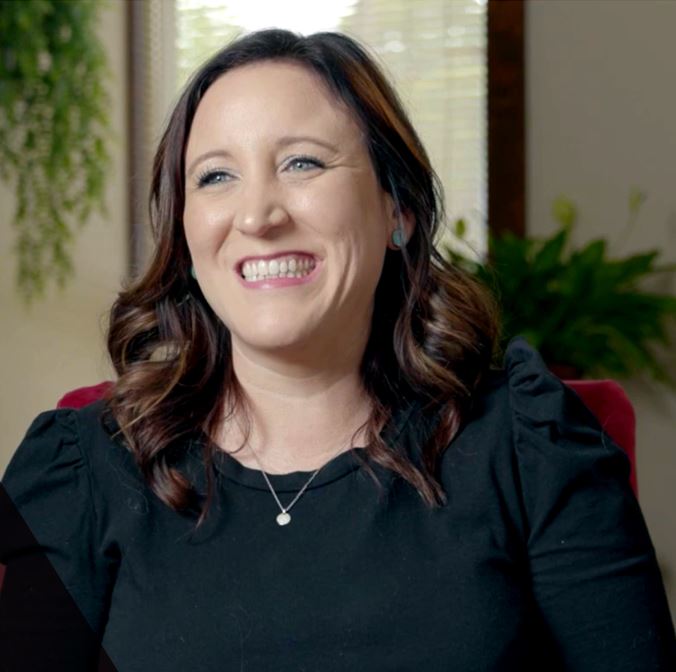
When Tamra Ketchum, LMSW, was in her undergrad program e, she wanted to work with veterans.
“I was thinking about the VA (U.S. Department of Veterans Affairs) and counseling younger veterans,” she said. “All the internships were taken, though, and I realized the only one left that would work with my schedule was one with hospice.”
Initially, Ketchum wasn’t sure if hospice was for her. But, as luck would have it, one of her very first patients was a World War II veteran.
“We had an instant relationship,” she said. “He was an absolute blessing to me. He became such a good friend, and that’s when I realized I was called to do this job.”
“Here for a reason”
After 12 years of serving as a hospice social worker, Ketchum still feels it’s her calling.
“We’re here for a reason,” she said. “It doesn’t matter if it’s helping someone in a big way or a small way. In hospice, it’s all big. It all matters.”
Ketchum recalls several times she knew she made a difference in a patient’s life. One was when she visited a patient who was mostly nonverbal in a facility’s memory care unit.
“She had these little eyes that brightened when she saw me,” Ketchum said. “She reached for my hand and smiled at me, so I just talked to her and told her I loved her. Even though she couldn’t say anything, I know I brought her joy.”
Another moment was more recent.
“I visited a patient at his home this week, and as soon as I walked in, he told me he didn’t have hope anymore,” Ketchum said. “I talked to him about dogs, birds, and movies — just random things really — and that even though he’s in hospice, he shouldn’t quit living and enjoying things he loves. By the time I left, he was smiling and thanked me for visiting him.”
Those little moments can make a big difference in patients’ lives, Ketchum said. Still, as a hospice social worker, Ketchum doesn’t just visit patients, she helps them and their families with a whole host of other things, too. Like filling out paperwork, preparing funeral arrangements, and facilitating long-term placement needs. Or helping them find the resources to pay for things like groceries, utilities, or water.
Ketchum also serves as an informal mediator between patients and their families, who don’t always see eye to eye.
“I’m there to make sure my patient’s wishes are honored by their family, and to help the whole family through the hospice journey, whatever that looks like for them,” she said.
National Social Work Month
Social workers are often called the unsung heroes of health care. “That’s because most social workers don’t approach their careers with an eye toward accolades”, Ketchum said.
“We do what we do for a reason because we feel blessed to be able to bring someone a little bit of comfort every day, a little bit of sunshine,” she said. “We don’t want recognition for it. We’re just grateful we’re able to bring comfort to people when they really need it.”
To honor these heroes, we celebrate National Social Work Month every March. And we’re dedicated to honoring all the little moments social workers help to make big — and to recognizing how much they’re needed. By 2030, there will be more than 782,000 social workers in the United States, according to the National Association of Social Workers (NASW), making it one of the fastest-growing professions in the country.
“I know many people think working in hospice as a social worker would be too sad,” Ketchum said. “And it probably is for most people. But it’s not for me. I feel called and very blessed to get to do what I do every day.”
To learn more about hospice care at Traditions Health, submit a request care form.